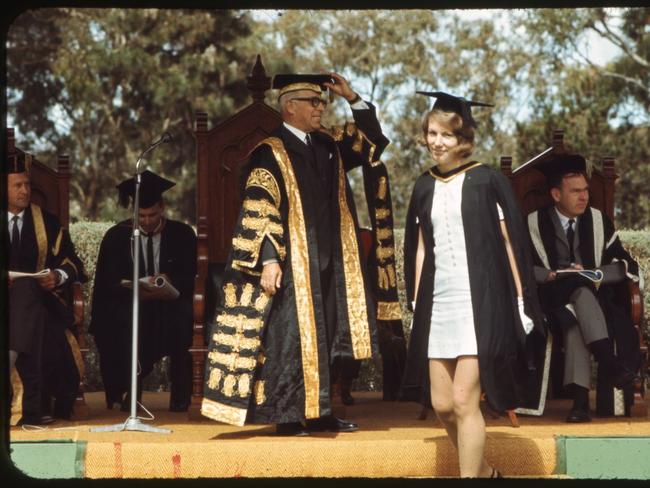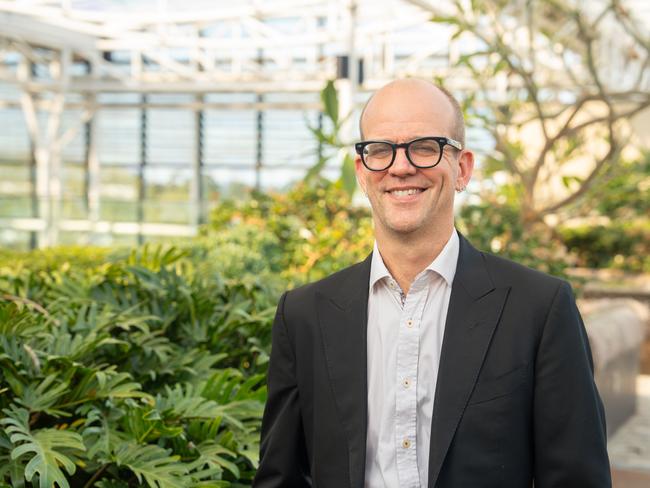‘Doesn’t actually help’: University responds to Albo’s HECS cuts
A new study has revealed the way Aussies approach uni is rapidly changing, however one thing remains imperative for prospective students.

Real Life
Don't miss out on the headlines from Real Life. Followed categories will be added to My News.
Campus vibes or couch convenience?
A new report highlights the growing divide in preferences for university learning formats between younger and older Australians, with mature-age students gravitating towards online study while Gen Z remains attached to traditional campus experiences.
The national survey commissioned by the University of New England (UNE) and run by Year13 – a digital platform that helps school leavers – examined the motivations, barriers, and preferences of more than 1,000 Australians considering university study.
Young vs mature: A stage-of-life divide
The study found a sharp divide between how younger and more mature age students preferred to study.
Will Stubley, co-founder of Year13, said younger students in their early 20s are drawn to the communal and social aspects of campus life.
“The research shows Gen Zs really want to head into uni and be in class while Millennials and Gen Xs aren’t nearly as keen,” Mr Stubley told news.com.au
“It’s a stage of life divide, where most students in their early 20s with more freedom on their side want to be learning with other students, meeting people and having fun around campus like uni is famous for.

“But going into class quickly loses favour for students in their late 20s and 30s when priorities shift from pub lunches between classes with their mates to their career and family, meaning university study needs to fit in around those central pillars of their life and not the other way around,” Mr Stubley said.
This shift is reflected in the survey results, where more than 64 per cent of respondents overall, and more than 70 per cent of those aged 25–54, expressed a preference for online learning.
For mature students such as James O’Hanlon, 40, who is currently pursuing a PhD in creative practice at UNE, online study is not just a preference but a necessity.
“Changing economies and employment landscapes has meant that I’ve had to be flexible and take my career in new directions,” Mr O’Hanlon said.
When the opportunity came to formalise his decision with postgraduate study Mr O’Hanlon figured he’d try something new, but with kids of his own and work to contend with flexibility in study became a deciding factor.
“Flexibility and ability to learn at my own pace in my own time are a necessity when coming back as a mature aged student,” he said.


Motivations and outcomes
The survey found that motivations for returning to study vary significantly with age. While younger mature-age students (25–44) often seek career progression or change, older learners (45+) are motivated by personal fulfilment and a chance to re-engage with education.
“These aren’t school leavers,” Mr Stubley said. “They’re experienced adults making calculated decisions. They’re asking: What will this cost me? How will it fit into my life? And what’s the return?”
“People want to study, but they’re pragmatic,” Mr Stubley said. “Universities need to do a better job of showing how courses fit into real lives and what outcomes students can expect.”
Financial barriers loom large
The survey also highlighted significant barriers to higher education, with cost standing out as the most cited obstacle. More than half of respondents (52 per cent) said financial concerns hindered their decision to study, and 42 per cent worried about accumulating student debt. Other barriers included full-time work commitments (29 per cent) and family responsibilities (22 per cent).

“Taking study seriously necessarily means other things have to step aside, such as full time employment,” Mr O’Hanlon added.
“The only way to make this work as a mature aged student with kids is often through scholarships or other financial support.”
Prime Minister Anthony Albanese ran on the election promise of wiping 20 per cent off student HECS and HELP loans.
However, UNE’s executive director of future students Dr Neil Durrant said that debt forgiveness is not the same as “changing the funding structures which allows students to not have that much debt in the first place.”
“I think clearly those things will be helpful to the students, the prospect of having less debt in the future or this messaging around the government’s concern about the debts that students have … ,” Dr Durrant said.

“[However] it doesn’t actually help universities with the cost of providing education,” he said.
“So when you’re looking at the kinds of cohorts of students that UNE is particularly expert in providing education to, they generally tend to be students that have a higher touch as far as support and that’s more costly to teach those kinds of students.
“So changing the HECS model doesn’t actually help universities provide the kind of quality education that we would be looking to provide.”
Universities respond to changing demands
Dr Durrant said the findings of the report justifies the university’s longstanding focus on mature-age and online learners, with a huge 85 per cent of UNE students studying online.
“This research validates what we’re hearing from our students every day,” he said.
“They want a high-quality university education that works with their lives, not against them.”
However, online study poses its own challenges, particularly around maintaining motivation and engagement. Dr Durrant emphasised the importance of creating a robust digital experience that supports interaction and connection.

“There’s a little bit of a catch 22 here with mature age students preferring online study where they’ve also expressed difficulties with online study in terms of staying motivated in terms of making sure that they had the intrinsic motivation to keep going with online study,” he said.
“And so I think what that signals for universities for us is this clarion call to make sure that the online experience that we provide is really high quality.
“It’s not a simple matter of just taking what you do in the classroom face-to-face and then somehow magicing that up into something online. It’s actually having a really strong focus on what it means for students to study online and how we keep students engaged and motivated.
Originally published as ‘Doesn’t actually help’: University responds to Albo’s HECS cuts




